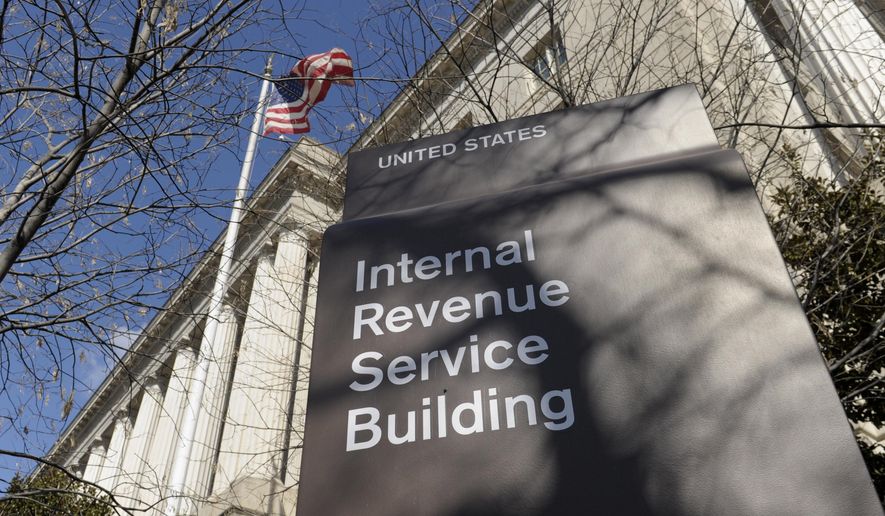The IRS is poised to implement guidelines that will allow a wide array of nonprofits to withhold the identities of their largest donors.
Many right-leaning advocacy groups have pushed for the Trump administration’s changes, but some watchdogs say the move will invite illicit foreign spending in American politics.
Under the new guidance, various tax-exempt groups would no longer have to publicly disclose the identities and addresses of donors contributing more than $5,000 on certain forms filed to the IRS.
The Trump administration has sought to implement the disclosure changes for tax-exempt organizations since summer 2018, but its efforts were slowed by a legal fight with the states of Montana and New Jersey.
A federal judge ruled against the Trump administration in July, forcing the federal government to continue collecting donors’ information during the public comment period, which ended last week. IRS spokesman Robert Marvin said the new guidance had not been finalized.
Among the right-leaning groups urging the IRS to make the changes are Americans for Prosperity, the political advocacy arm of the Koch Network; the U.S. Chamber of Commerce, the nation’s biggest business lobby; and Alliance Defending Freedom, a Christian nonprofit law firm focused on religious and civil liberties.
Alliance Defending Freedom senior counsel Zack Pruitt said the change shows that the federal government does not need the donors’ disclosure information to enforce the tax code.
Mr. Pruitt said the firm views the proposed changes as an effort to prevent the weaponization of donors’ information amid the doxxing culture that has emerged in the digital age. Doxxing involves the publication of private or personal information, usually online and often with malicious motives.
“We’re seeing that the disclosure of this information, whether inadvertent or intentional, can be used for pretty nefarious means,” Mr. Pruitt said. “The new regulation would protect the freedom of speech and privacy and association.”
Concerns about donors’ safety have become paramount for conservatives and supporters of President Trump, especially since August when Rep. Joaquin Castro, Texas Democrat, publicly spread on social media the names and professions of his constituents who had maxed out donations to Mr. Trump.
Cause of Action Institute lawyer Ryan Mulvey, who represents Americans for Prosperity, told the IRS in its official comment that the proposed changes would help protect the group’s donors.
“AFP’s views draw support and opposition from across the political spectrum, and experience has shown that its donors will face threats, harassment and reprisals if their names are publicly disclosed,” Mr. Mulvey said in a letter to the IRS. “Those supporters who have already become publicly known, either by choice or otherwise, have faced repercussions ranging from threats to kill or maim to boycotts, firings, and public shaming. Unsurprisingly, many donors insist that their information be kept private, and AFP zealously protects donor confidentiality to ensure the personal safety of its contributors and to safeguard their trust.”
Campaign finance watchdogs, however, have expressed concerns that the changes in guidance will invite bad actors to exploit the rules. The Campaign Legal Center’s Brendan Fischer wrote the IRS this month to ask it to halt the rules change immediately or risk necessarily, “giv[ing] foreign interests seeking to interfere secretly in our elections a bright green light.”
“The proposed rule would effectively invite illegal foreign spending in U.S. elections, cripple future enforcement of campaign finance laws, and hamstring efficient tax administration,” Mr. Fischer wrote. “CLC strongly urges the IRS not to adopt the proposed rule as written.”
Americans for Tax Reform, a conservative anti-tax group, disputed such criticism in its effort urging the IRS to adopt the rules. President Grover Norquist wrote the IRS this month in support of the changes and said criticism that the guidance would permit illegal foreign transactions was incorrect.
“There are already measures in place to track these transactions, and it is highly unlikely that anyone will admit to funneling illegal money on the [disclosure] form,” Mr. Norquist wrote. “Even if the IRS did suspect laws were being broken, it has no authority to share the information it collects with the [Federal Communications Commission] and the [Justice Department], the two agencies with the ability to enforce campaign finance laws. This proposed rule will save taxpayers time and money while also protecting privacy and free speech for all Americans.”
The fight could hit the Supreme Court’s docket in the new year. Next month, the high court is scheduled to consider whether to hear Thomas More Law Center v. Becerra, involving whether nonprofits must disclose confidential donor information to California.
• Ryan Lovelace can be reached at rlovelace@washingtontimes.com.




Please read our comment policy before commenting.